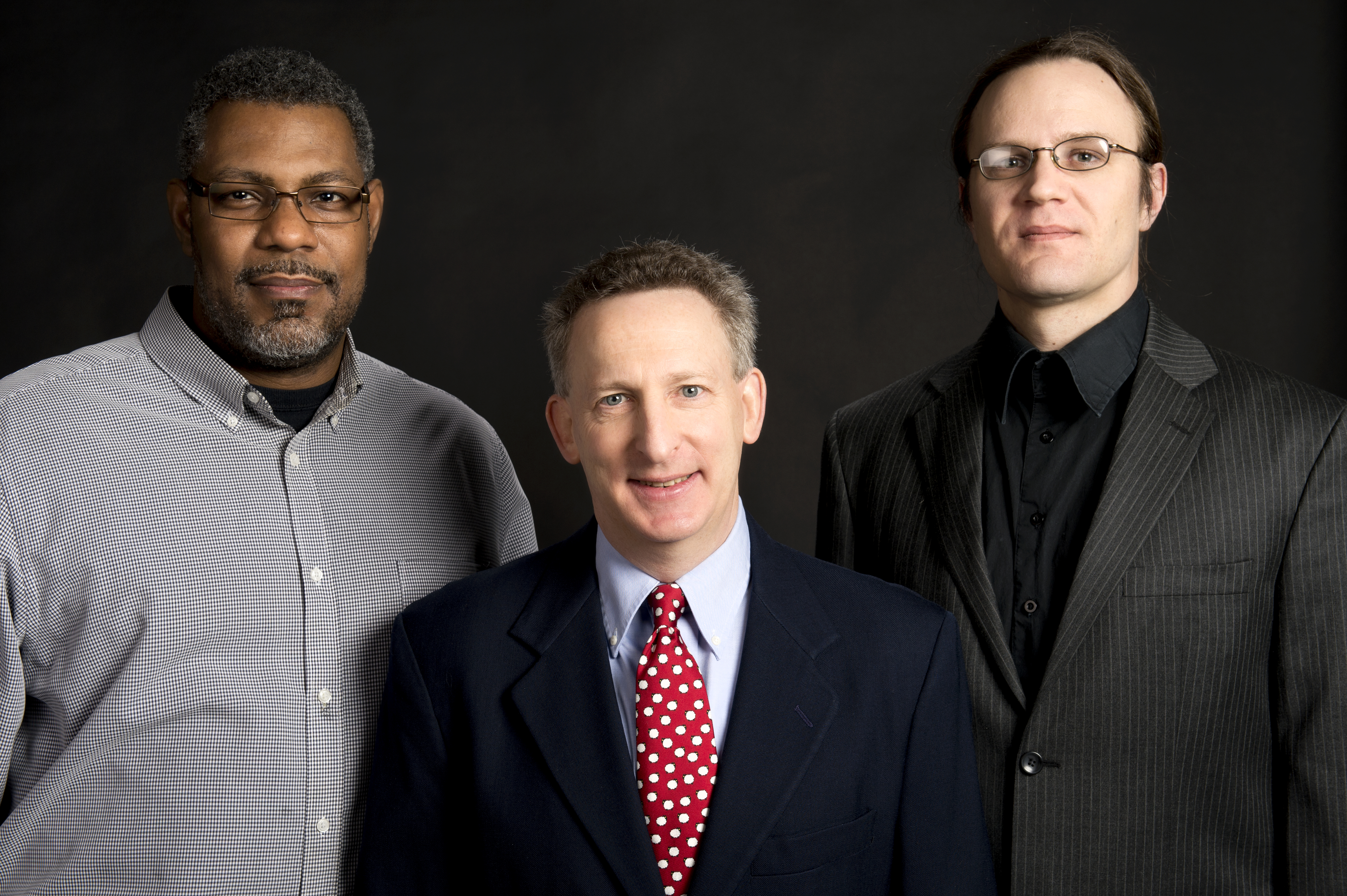Three-person interdisciplinary team receives 2013 XCaliber Award

A three-member, interdisciplinary team has received the 2013 XCaliber Award for excellence as a group involved with technology-assisted teaching.
Members of the award-winning team include:
- Eric Gilmore, assistant director, systems integration and Web development, Institute for Distance and Distributed Learning;
- Oddbjørn Hestnes, Web application developer, Institute for Distance and Distributed Learning; and
- Ron Lewis, professor of animal and poultry sciences, College of Agriculture and Life Sciences.
Established in 1996 by Office of the Provost, the XCaliber Award (shorthand for exceptional, high-caliber work) is presented annually by the Virginia Tech Center for Innovation in Learning to recognize individual faculty members or teams of faculty and staff who integrate technology in teaching and learning. The award celebrates innovative, student-centered approaches to learning activities.
The team was recognized for the development of CyberSheep, a Web-based, genetic simulation game that provides students experience applying principles in quantitative genetics to a virtual sheep breeding cooperative. Undergraduate and graduate students from 25 universities have played the game, in many cases simultaneously, balancing decision-making within their own flock with that of the overall cooperative.
In playing CyberSheep, students engage in hands-on, experiential learning and are challenged to achieve one of two goals: improve market weight while alleviating a genetic disease, or, increase the market value of their flock. The game challenges both genetic and economic principles.
“Reaction to the CyberSheep game, from both faculty and students alike, has been overwhelming,” said Barbara Lockee, professor and associate director for research and outreach in the School of Education, who works with Lewis under a U.S. Department of Agriculture-funded project focused on an online graduate curriculum in animal breeding and genetics. “CyberSheep is a noteworthy example of how technology can be used to create innovations in learning that are effective and engaging, and that impact learning beyond the geographic boundaries of our campus.”
Gilmore received a bachelor’s degree and is pursuing a master’s degree from Virginia Tech. Hestnes received two bachelor’s degrees from Virginia Tech and a Philosophy Diploma from the University of Stavanger – Hogskolen. Lewis earned a bachelor’s degree from the University of California, Davis, a master’s degree from Texas A&M, and a doctoral degree from Virginia Tech.
Dedicated to its motto, Ut Prosim (That I May Serve), Virginia Tech takes a hands-on, engaging approach to education, preparing scholars to be leaders in their fields and communities. As the commonwealth’s most comprehensive university and its leading research institution, Virginia Tech offers 240 undergraduate and graduate degree programs to more than 31,000 students and manages a research portfolio of $513 million. The university fulfills its land-grant mission of transforming knowledge to practice through technological leadership and by fueling economic growth and job creation locally, regionally, and across Virginia.




